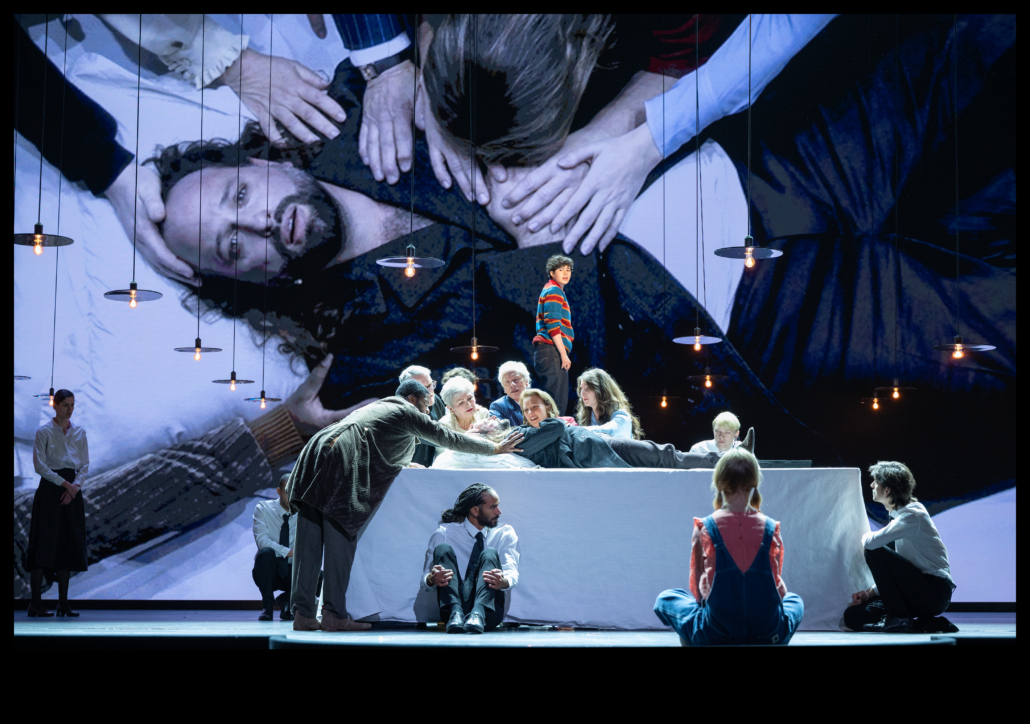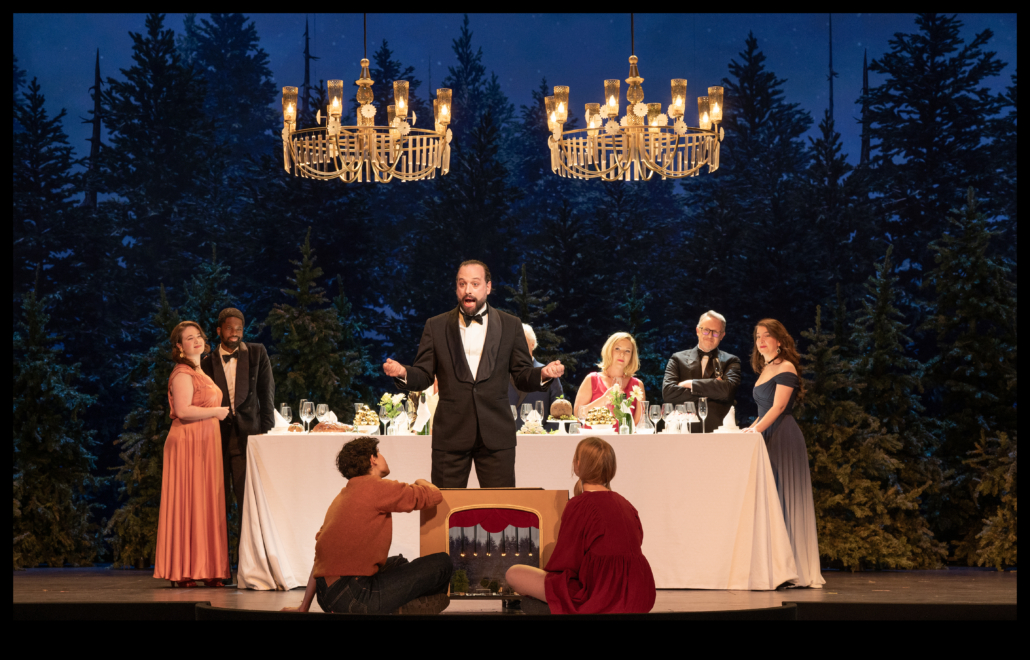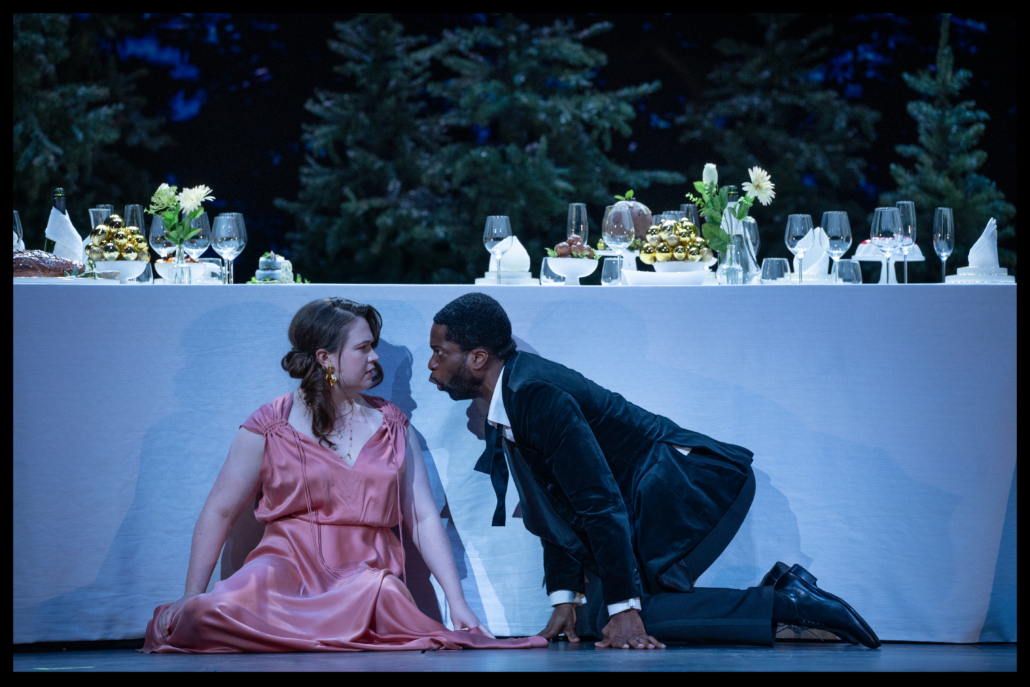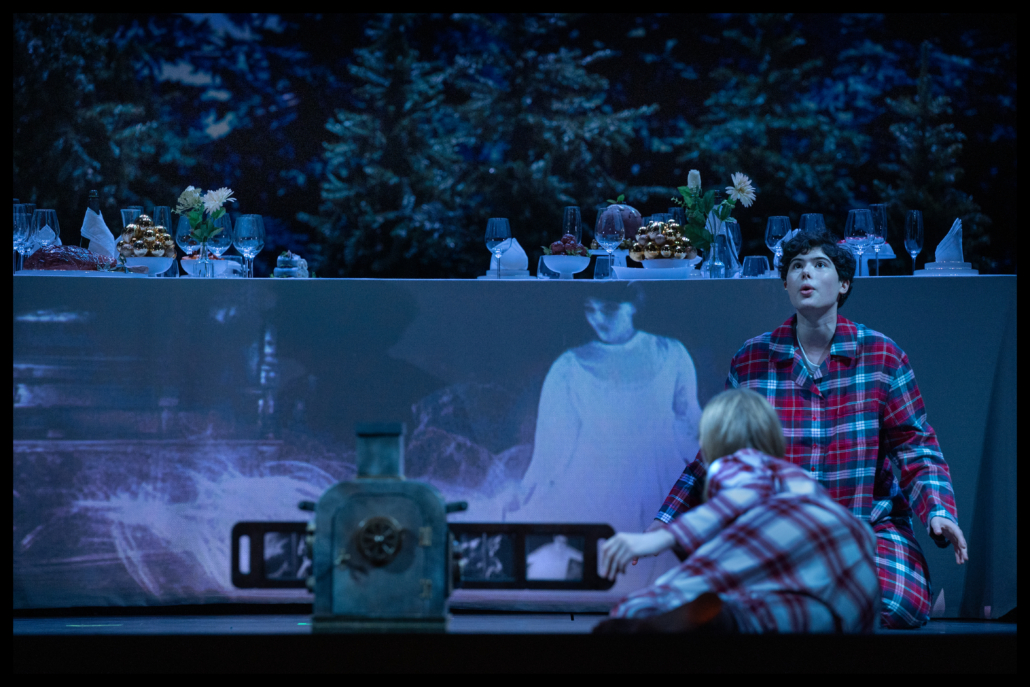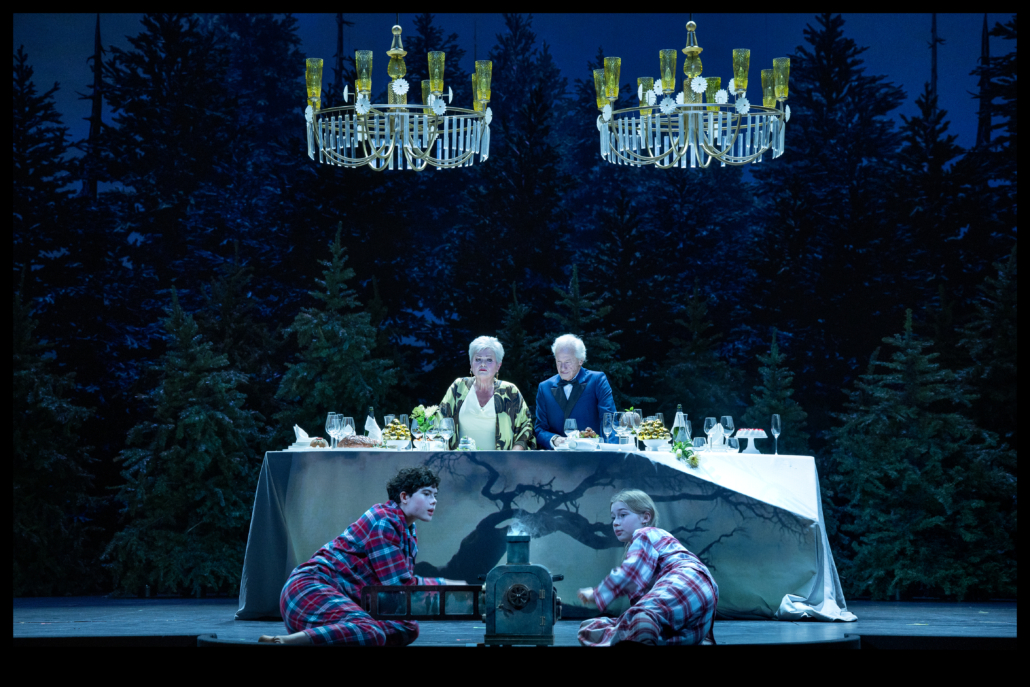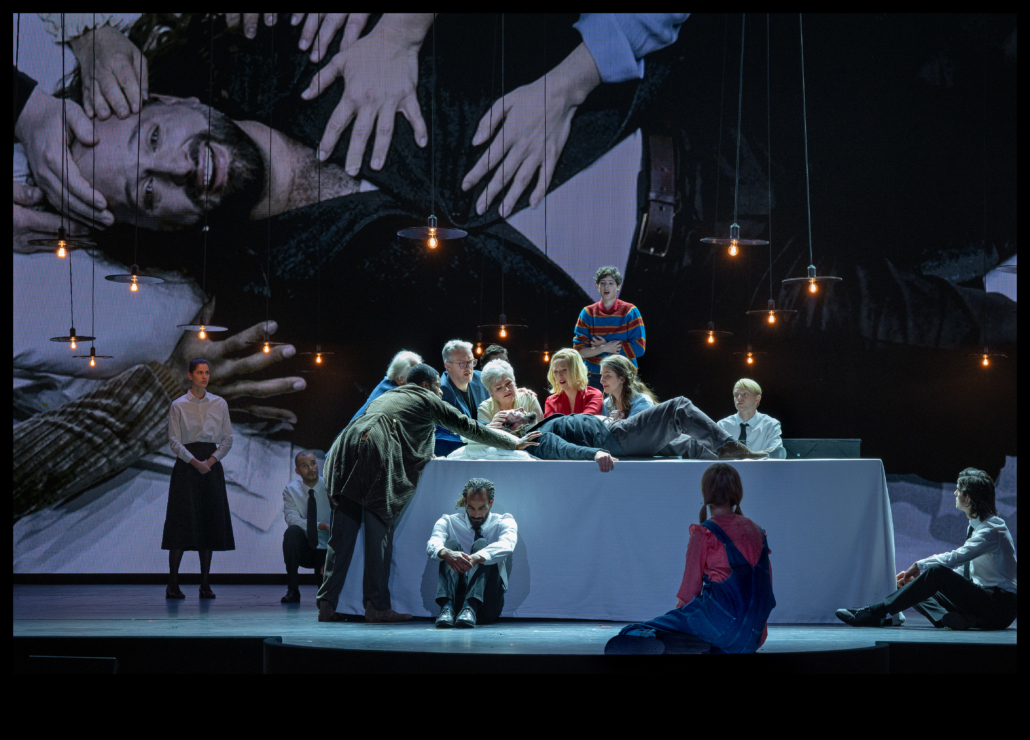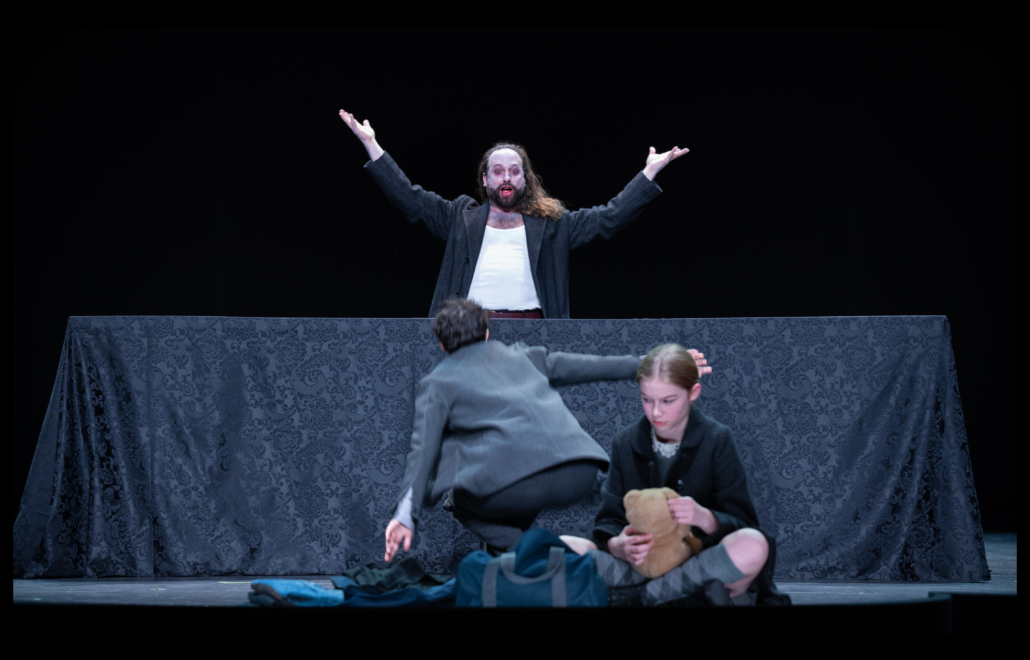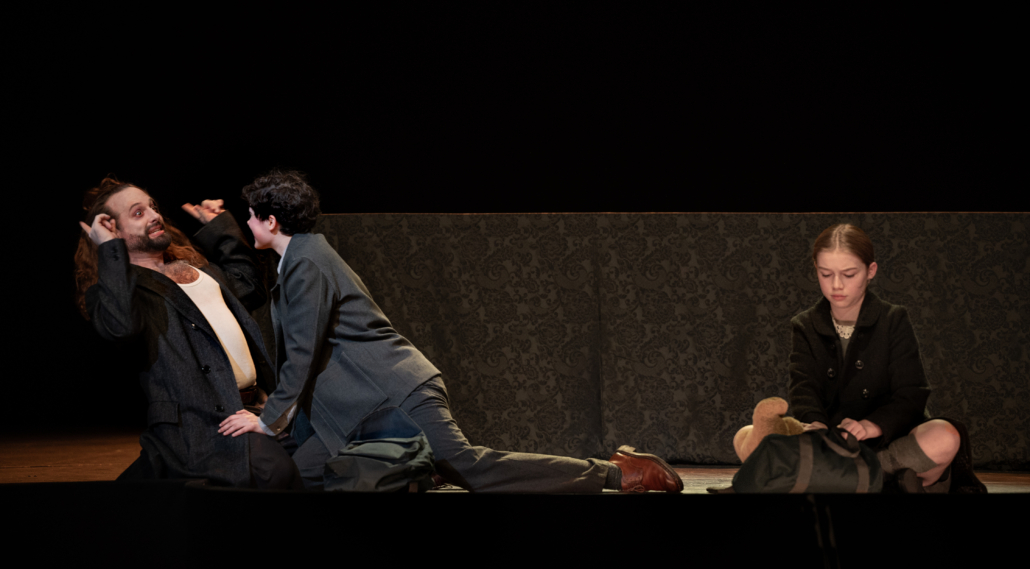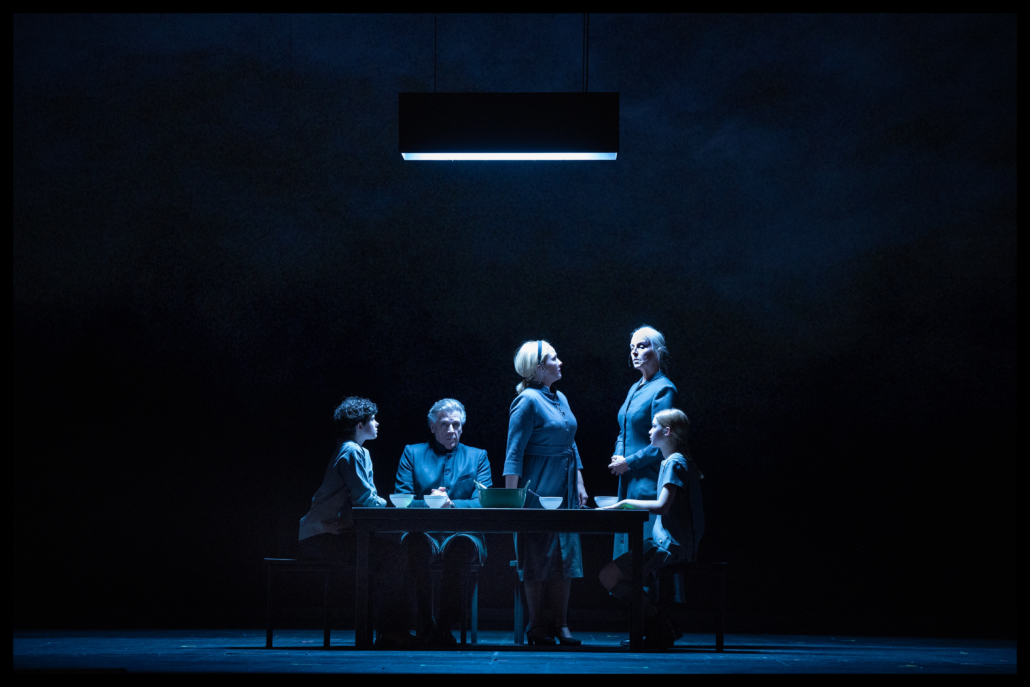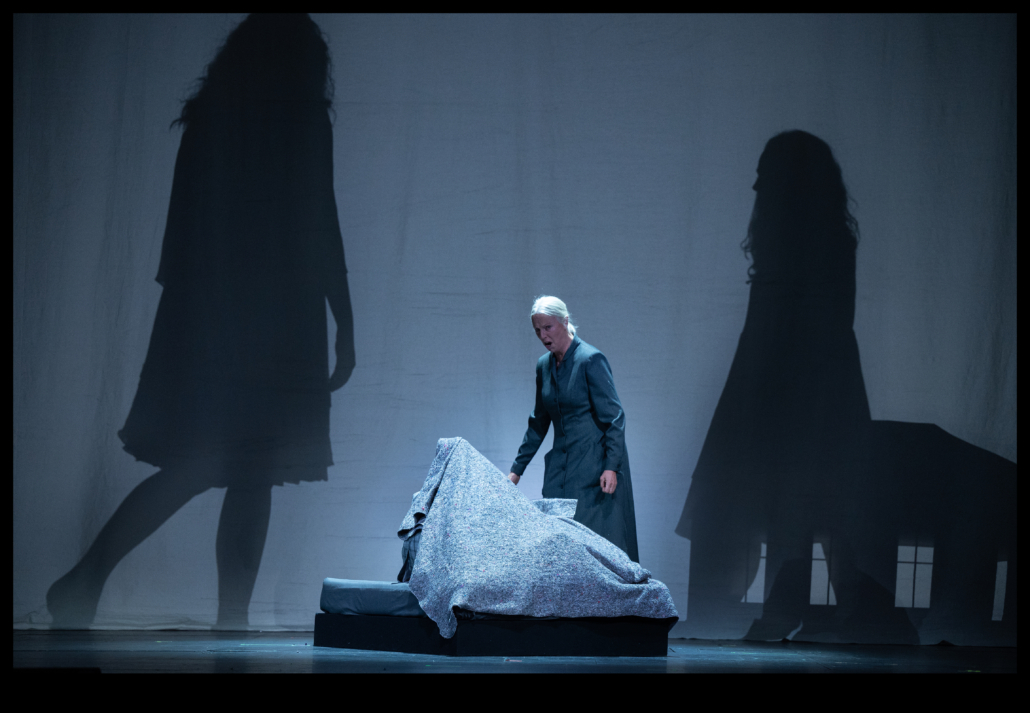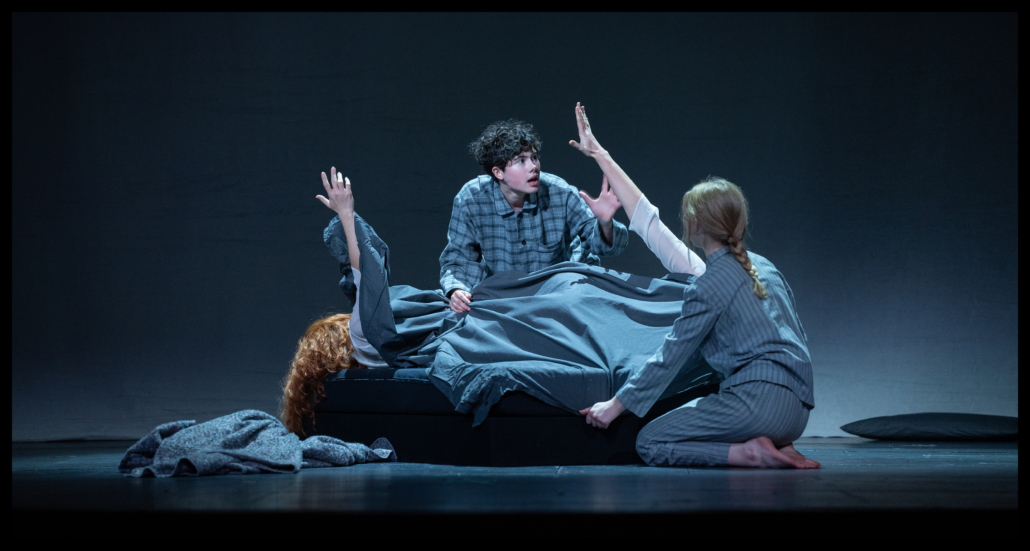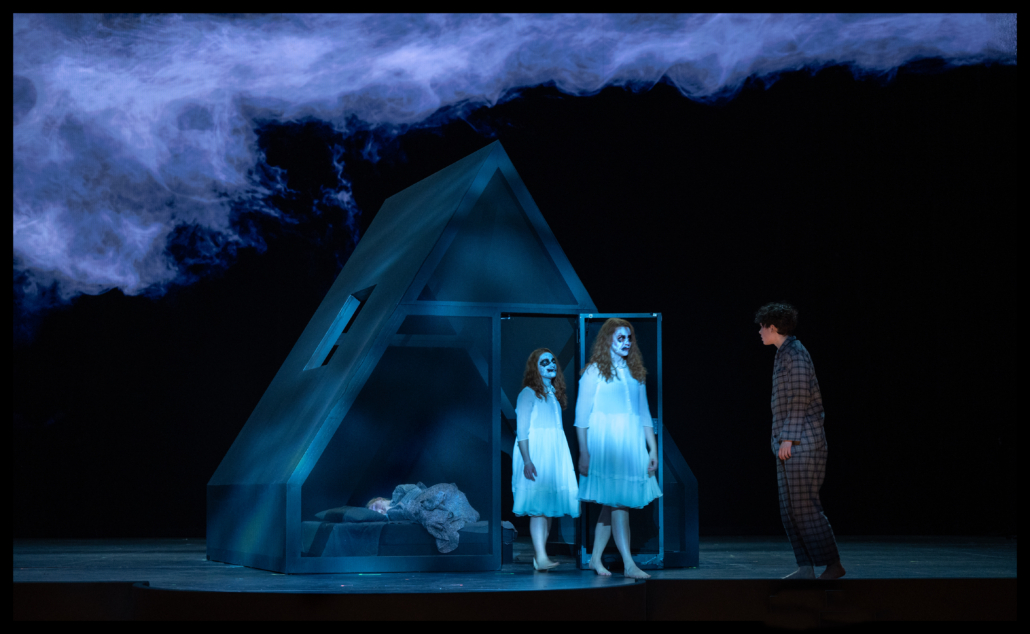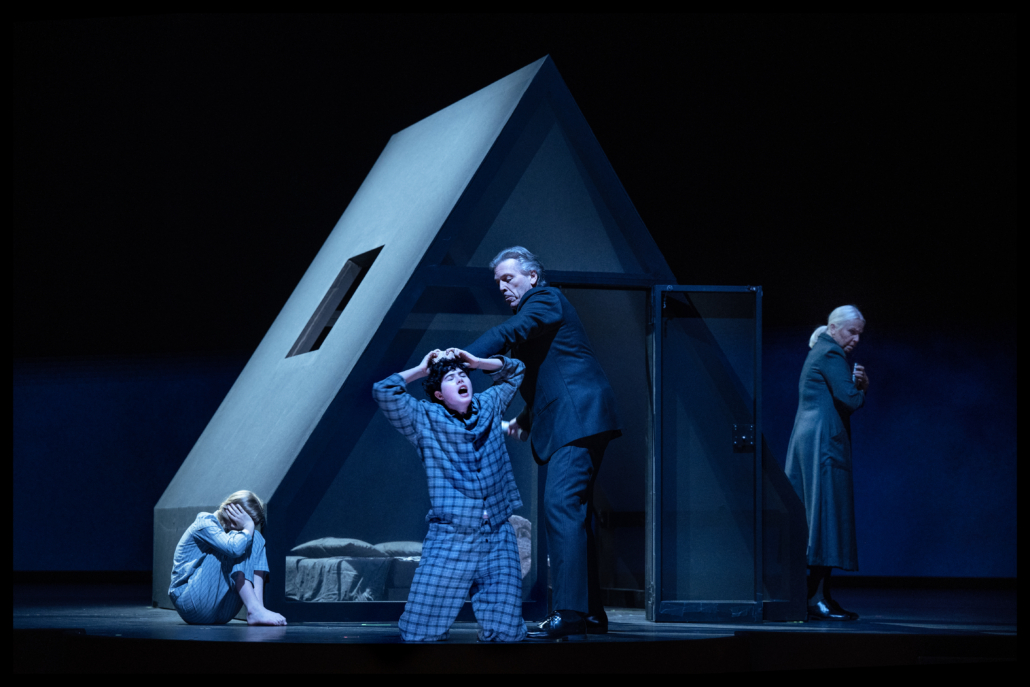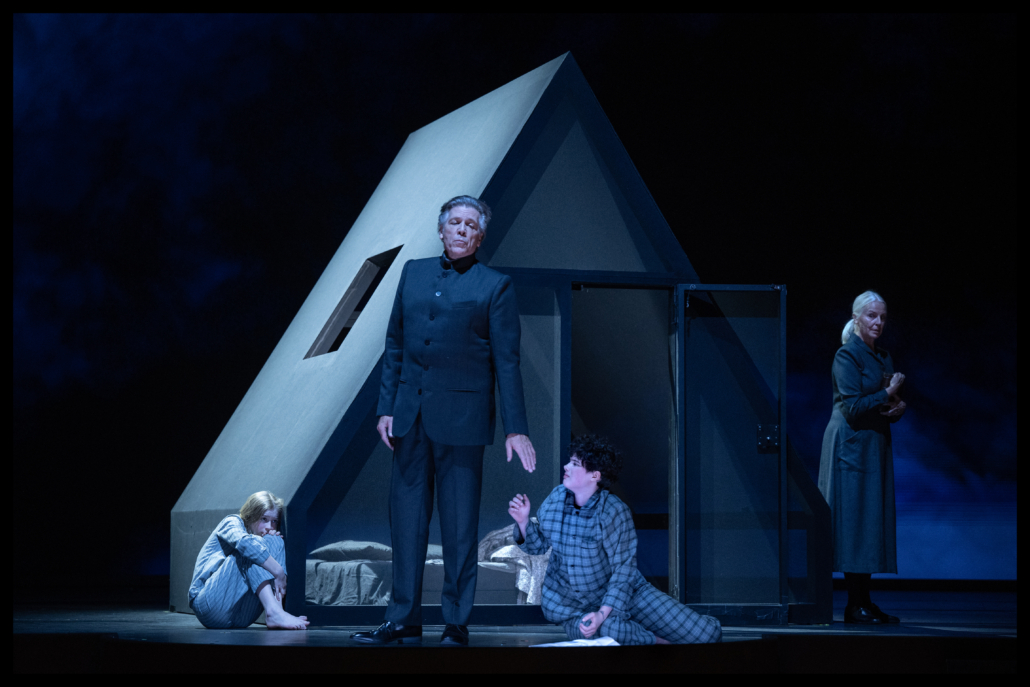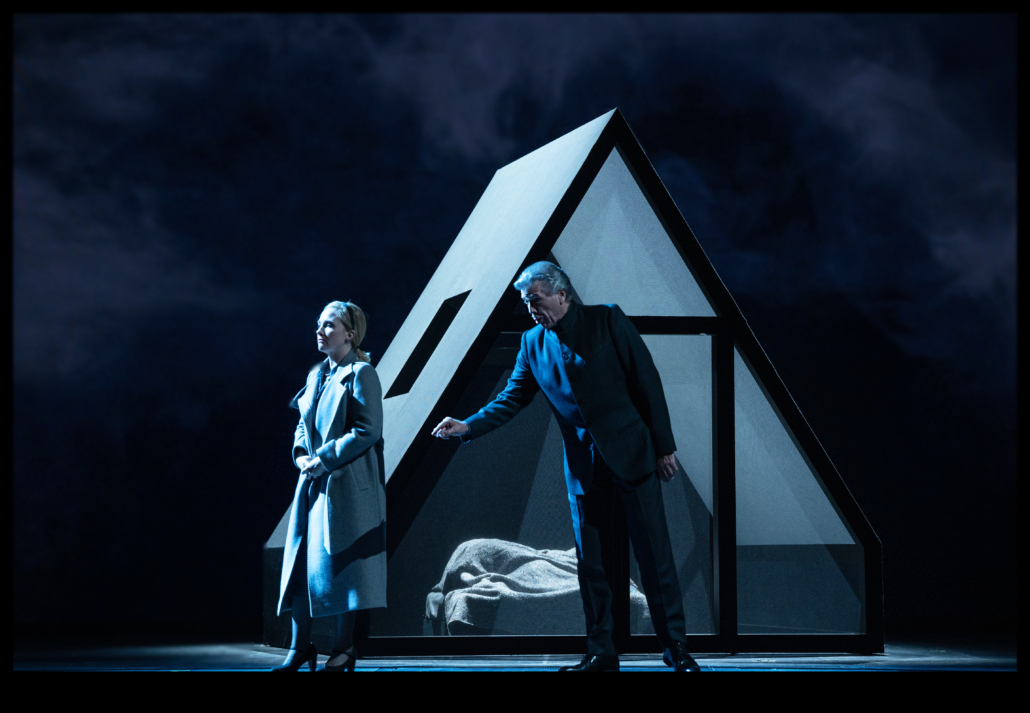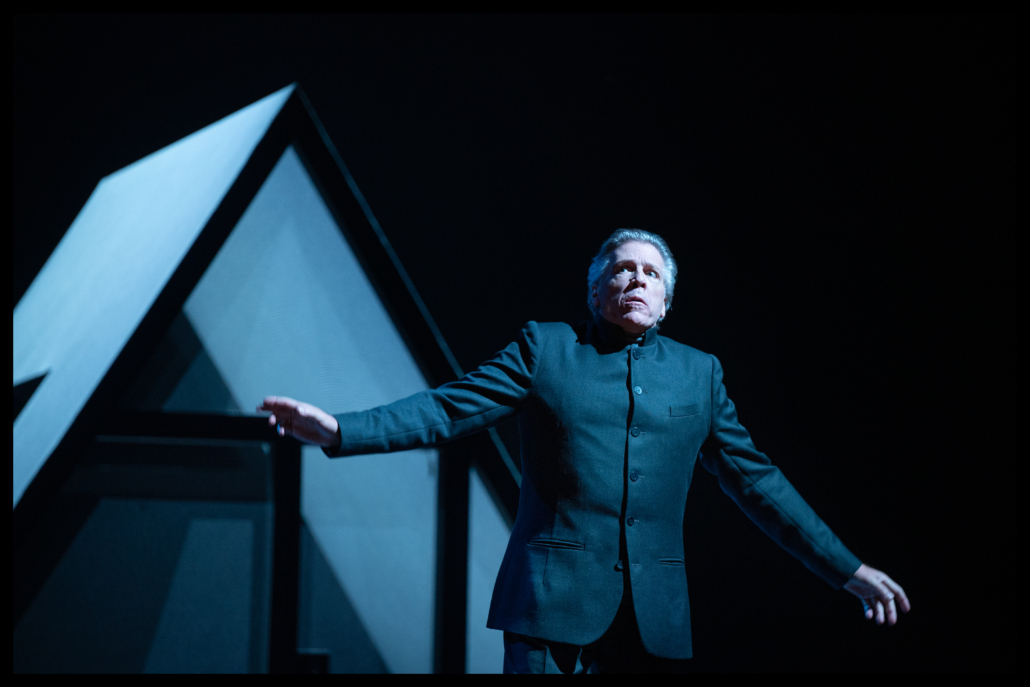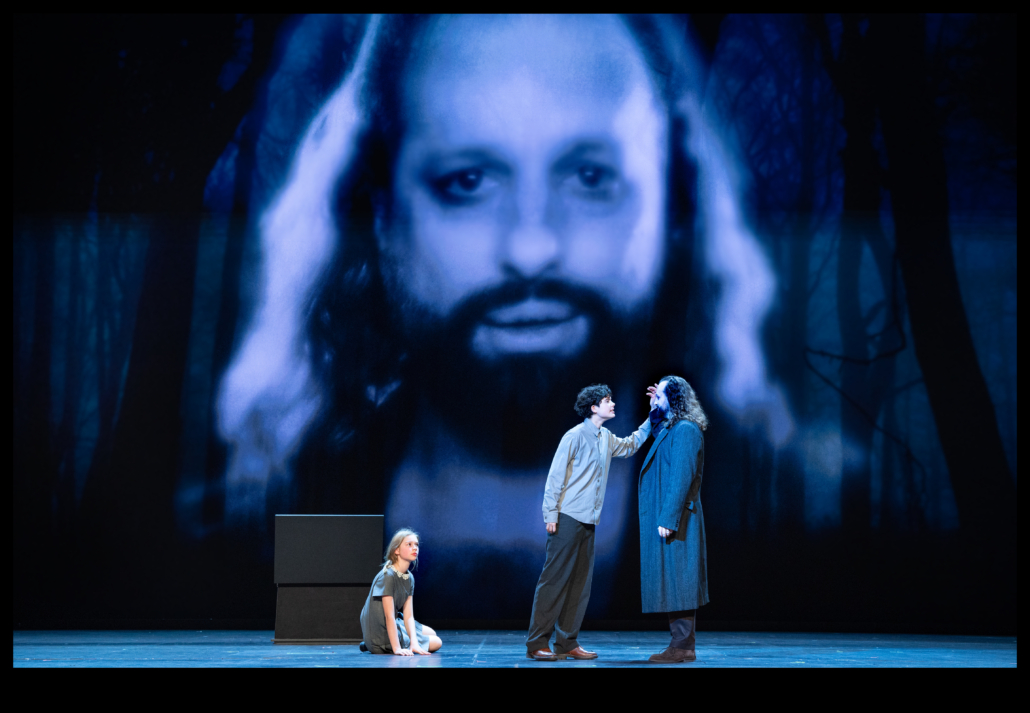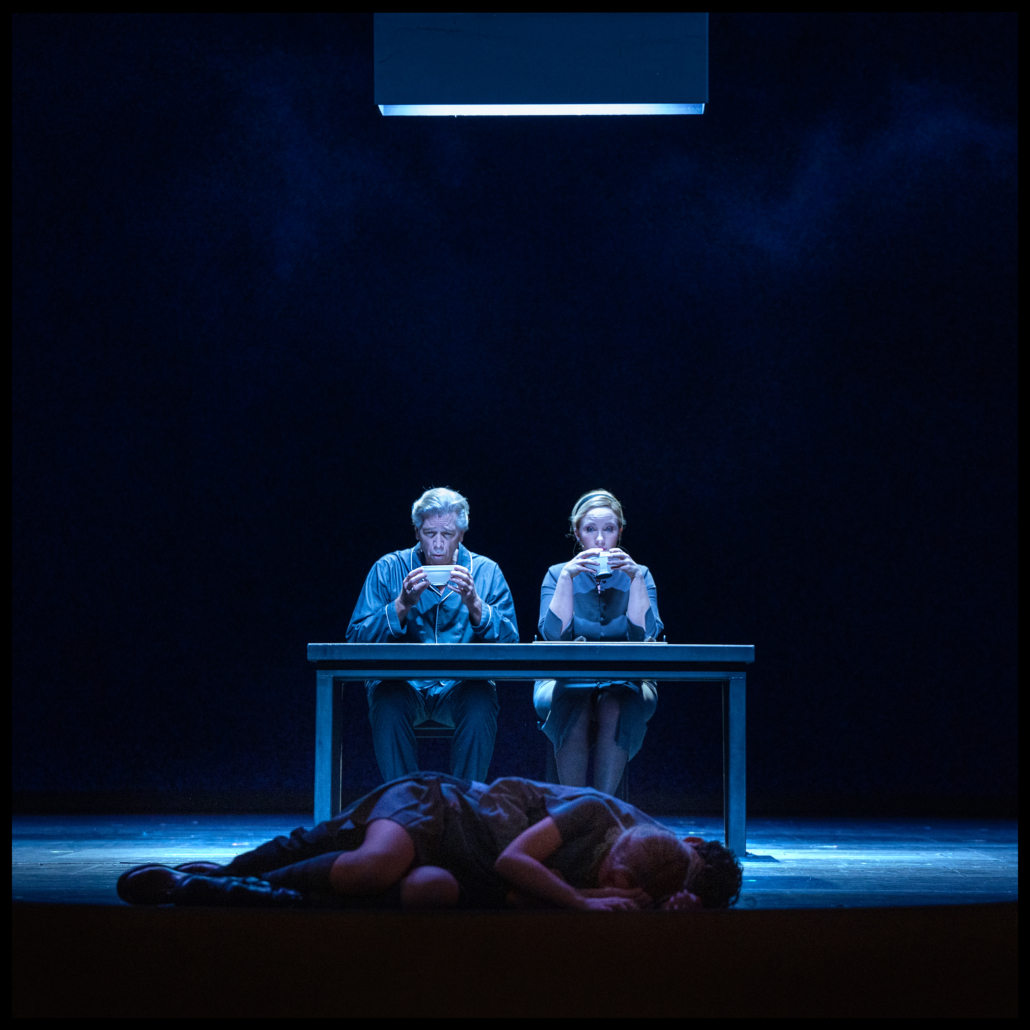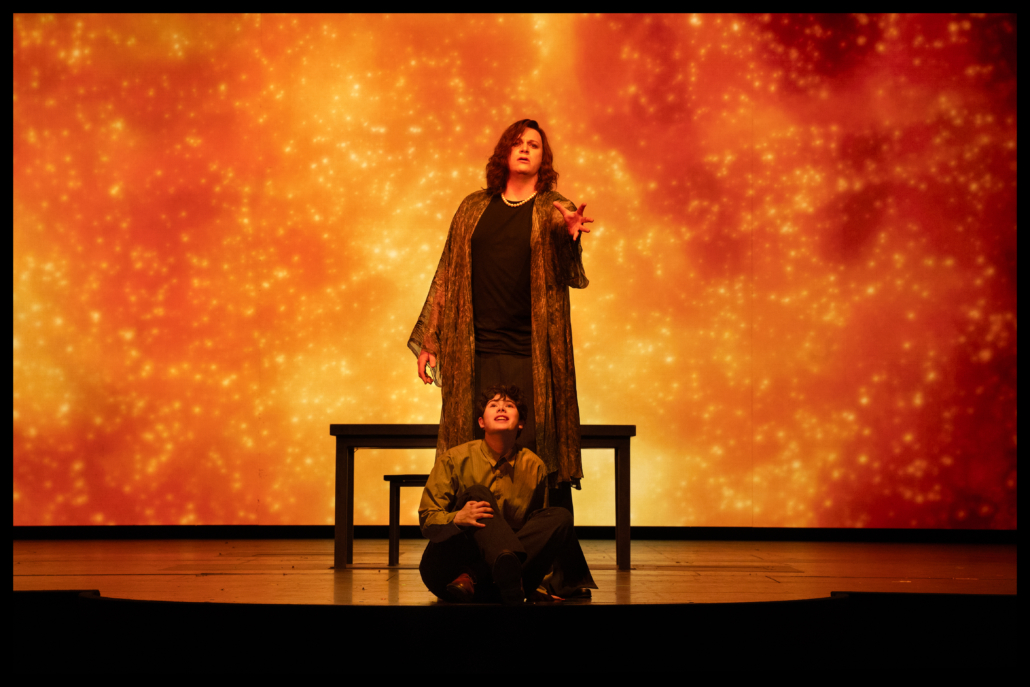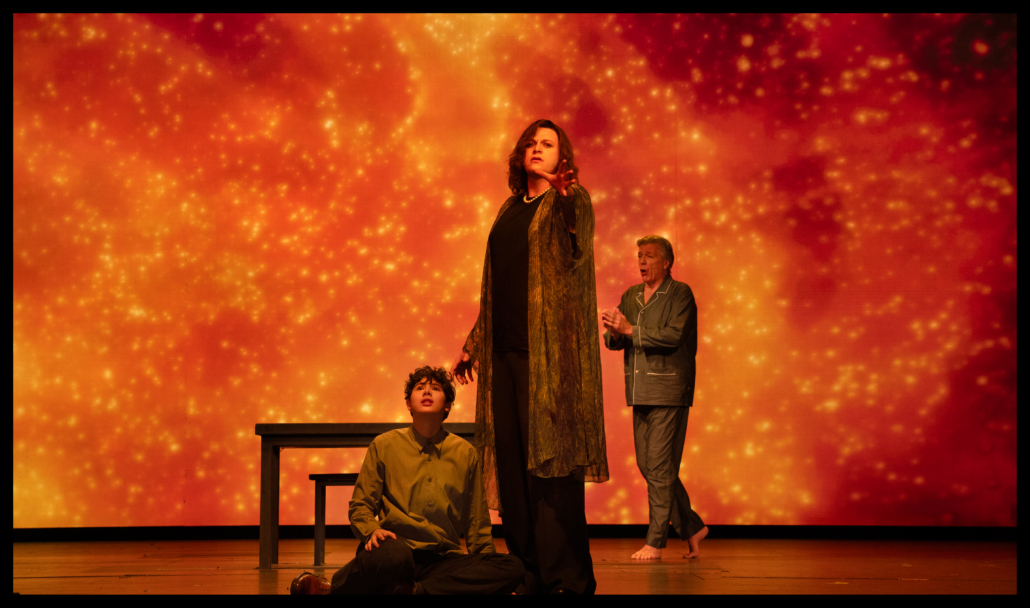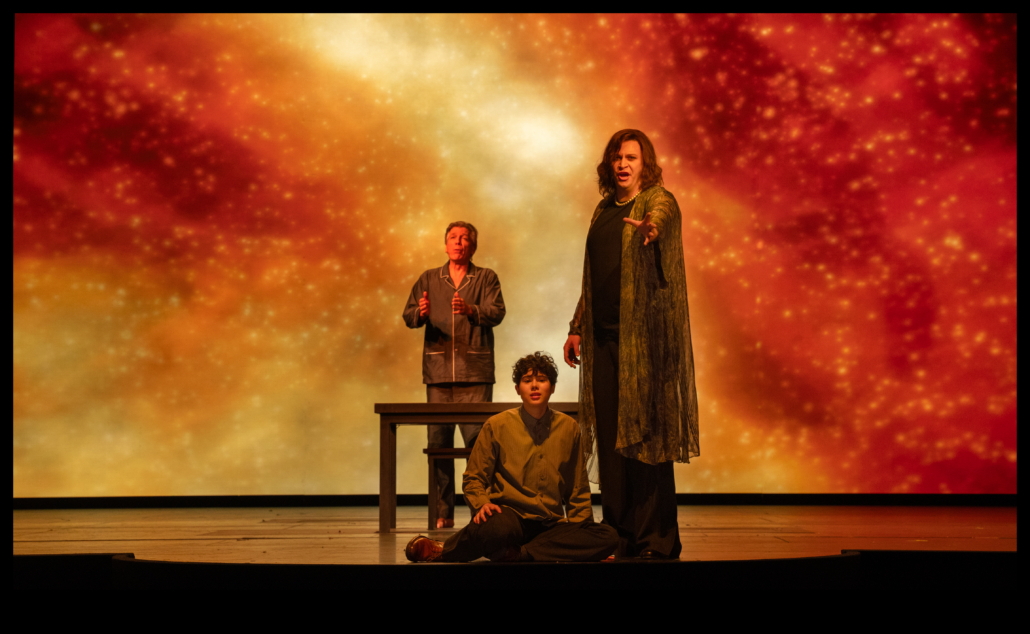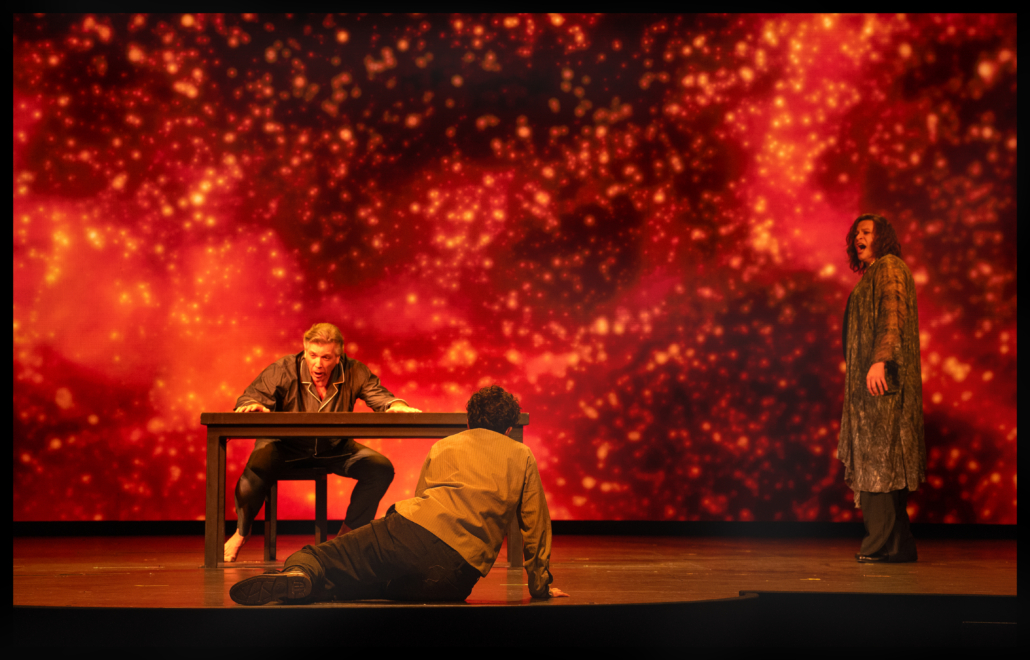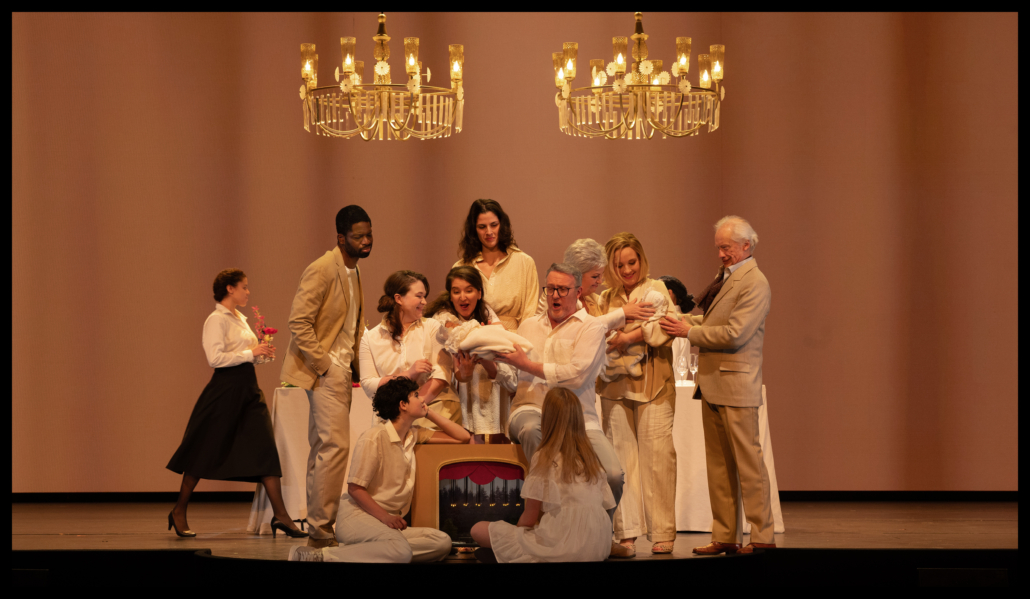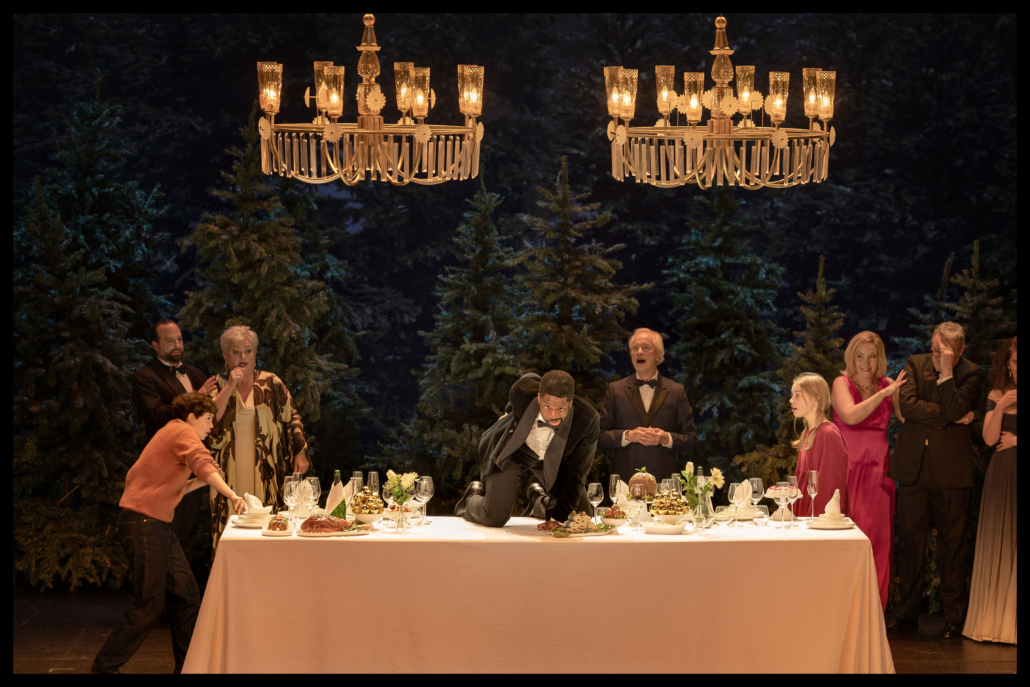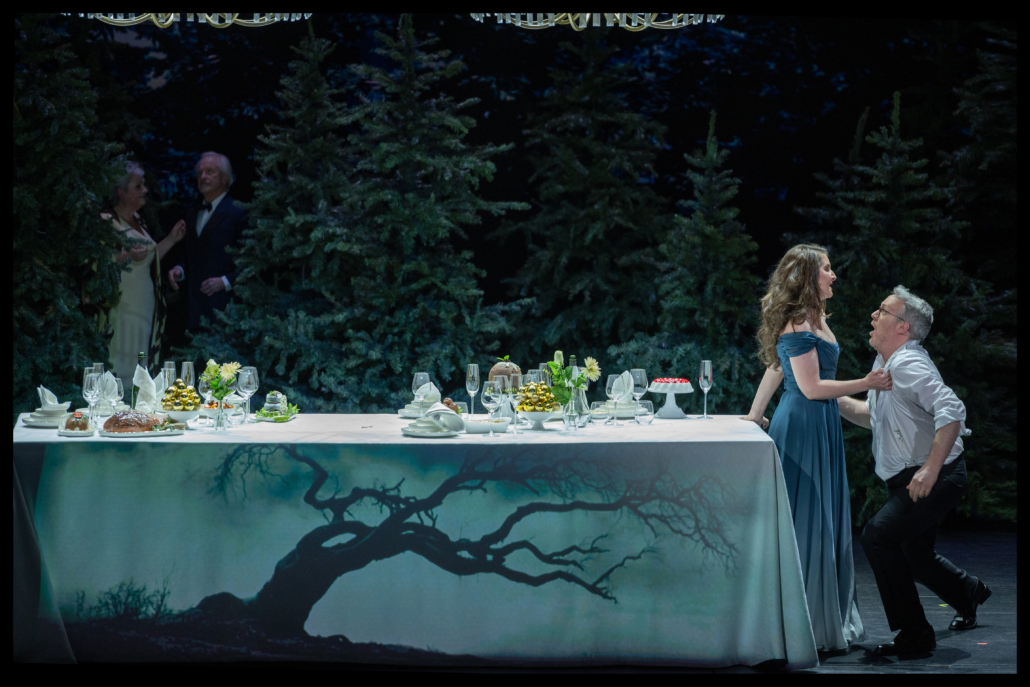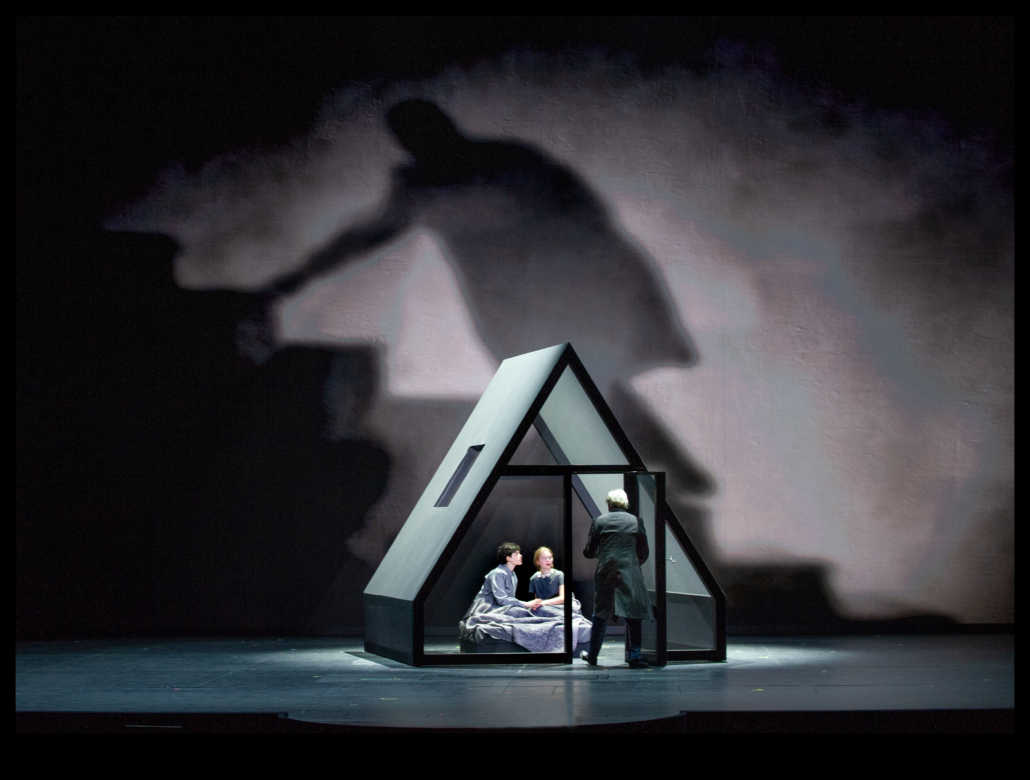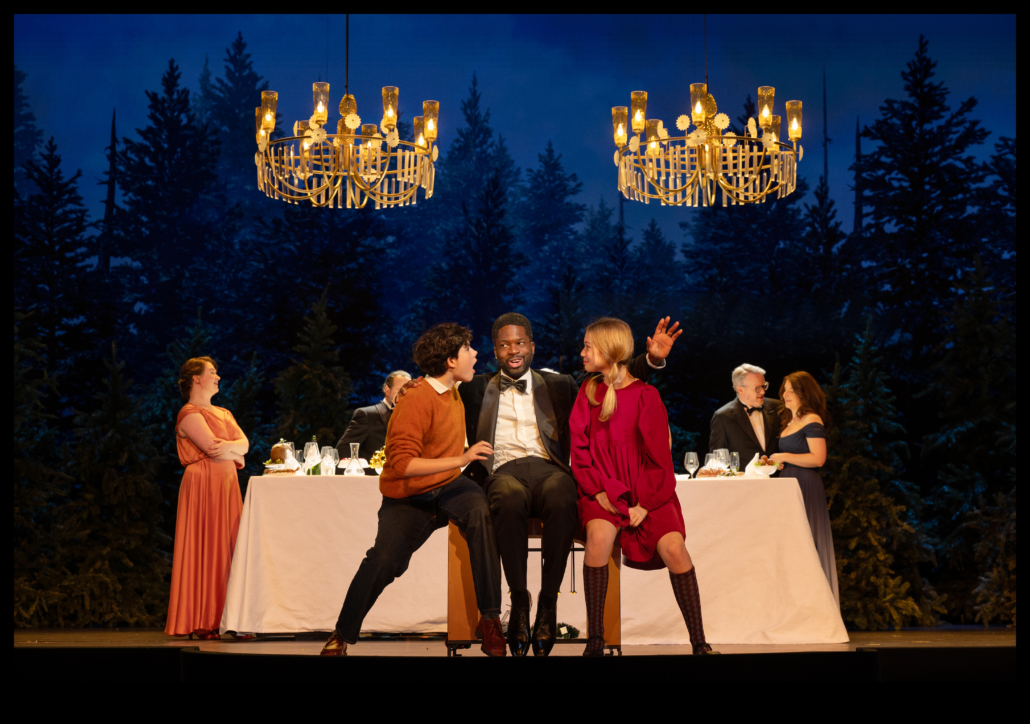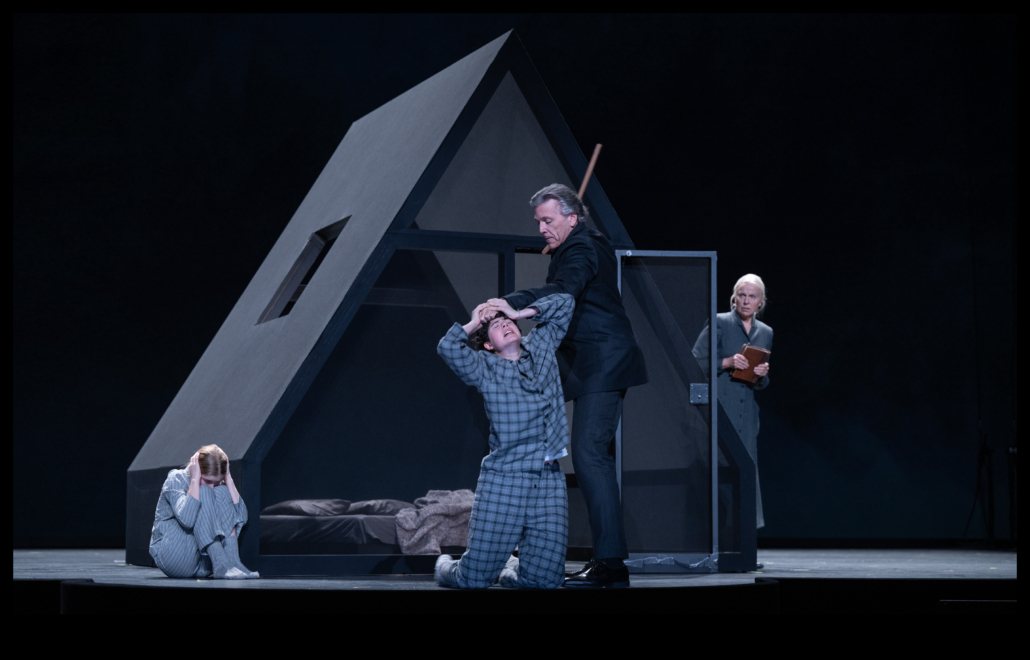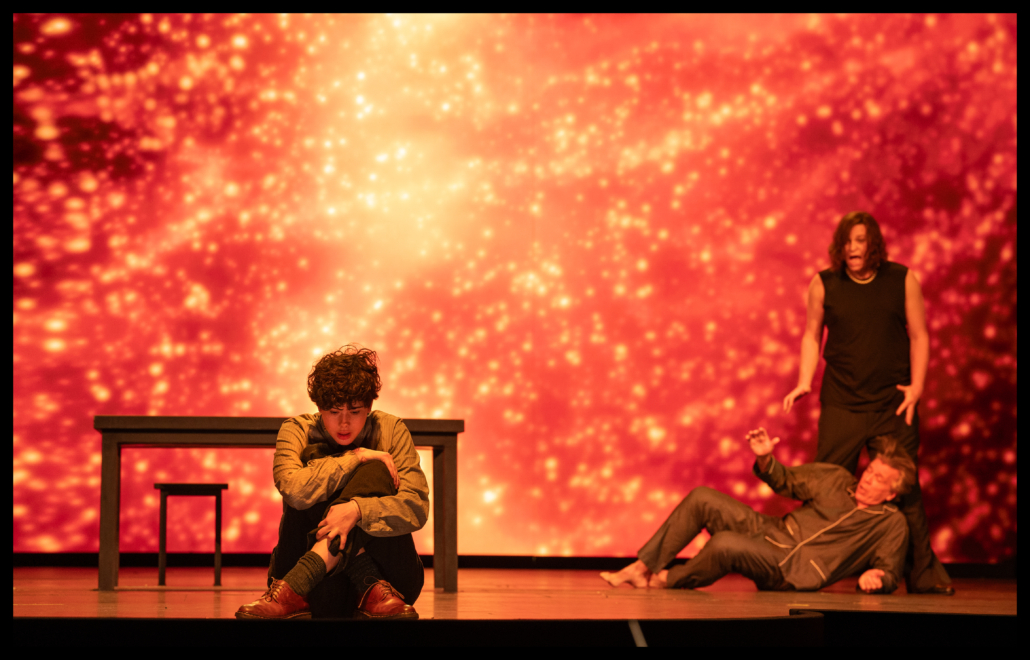Fanny and Alexander is a grand opera in two acts, adapted from the film by Ingmar Bergman by Mikael Karlsson and Royce Vavrek, with support from the Bergman Estate and artistic consultation from Cinematograph AB (Ingmar Bergman Jr. and Claes du Rietz).
The opera was commissioned by Peter de Caluwe and the La Monnaie Royal Opera in Brussels, Belgium, and had its world premiere on December 1 2024. The 9 performances were completely sold out the day after the premiere.
ACT 1
Christmas at the Ekdahls. Helena, the matriarch of the family, awaits her family’s return from the annual nativity pageant. A parade of relatives floods the decorated house and we meet Oscar and Emilie and their children Fanny and Alexander, as well as Oscar’s brothers Carl and Gustav Adolf, alongside their respective wives, Lydia and Alma. The holiday celebration also welcomes the family friend Isak Jacobi, a paramour of Helena’s from many years prior. Oscar, being the eldest son, gives a Christmas toast, and becomes flush, the family believing that he has just had too much to drink. Days later, while rehearsing a for a production of “Hamlet”, Oscar suffers a massive heart attack, falling to his death while on stage. Emilie takes time to consider her future, ultimately deciding to leave the family and remarry. She uproots young Fanny and Alexander from the warmth of the theatrical Ekdahl clan, and decides to take as her husband the town’s Bishop, living with him in the church’s quarters. The Bishop proves to be a strict disciplinarian, raising the children with a rigidity that they are unaccustomed to. The children are also introduced to Justina, a long-serving maid who aligns herself with the brutality of the Bishop. When Alexander reveals to Justina that he saw the apparitions of two girls who died while under the Bishop’s care, the maid alerts the Bishop to Alexander’s lies, who seeks to extract a confession from Alexander by means of a severe beating. Alexander is locked away in the attic to reflect on his behavior.
ACT 2
With Emilie discouraged about the abusive discipline of her children at the hands of her new husband, and the laws meaning that the children would legally belong to the Bishop if she fled, it is up to Isak to try to trick the Bishop into handing over the Fanny and Alexander. Isak makes a deal with the Bishop to buy a large wooden chest at a fair price. When the Bishop finalizes the contract, Isak unlocks Alexander from the attic and hides the two children in the chest, easily walking them out of the Bishop’s home. Isak brings them to his home, a fantastical world of puppets and theatrical magic. It is here that Alexander meets one of Isak’s two sons, Aron, and is told of the other son Ismael, an enigmatic figure with mystical powers that force him to lead a solitary life. While Fanny and Alexander are safe at Isak’s, the Bishop appeals to Carl and Gustav Adolf in hopes of getting his stepchildren back. No deal is made. Late at night, Alexander gets up to use the bathroom, and finds himself in the company of Ismael. The two have a spiritual communion where Alexander reveals his inner rage and hatred for the Bishop. Back at the church, Emilie drugs the Bishop with bromide, giving her enough time to escape his clutches. In his drugged stupor, the Bishop knocks over a kerosene lamp, lighting himself and the church on fire.
Months later the Ekdahls join as a family once more, welcoming Emilie, Fanny, Alexander, and a new baby back into the fold.
MUSIC Mikael Karlsson
LIBRETTO Royce Vavrek
Based on the film by Ingmar Bergman
ORCHESTRATION Michael P. Atkinson & Mikael Karlsson
CONDUCTOR Ariane Matiakh
DIRECTOR Ivo van Hove
SET & LIGHTING DESIGN Jan Versweyveld
COSTUME DESIGN An D’Huys
VIDEO DESIGN Christopher Ash
DRAMATURGY PREPARATION Peter Van Kraaij
DRAMATURGY Lalina Goddard
SYNTHS AND ABLETON PROGRAMMING Emile Warny
SOUND PRODUCTION MANAGER Vivien Mertz
ASSISTANT TO VIVIEN Niels De Schutter
SOUND DESK OPERATORS Nicolas Charloteaux, Owen Rose
ARTISTIC ADVISORS; Ingmar Bergman Jr, Claes du Rietz, Cinematograph AB.
COMMISSIONED AND PRODUCED BY La Monnaie Royal Opera and Peter de Caluwe
WORLD PREMIERE December 1 2024
WITH KIND PERMISSION the Ingmar Bergman estate, Josef Weinberger Ltd.
RUNNING TIME Approx. 2 hours 40 minutes
WORLD PREMIERE CAST
- SUSAN BULLOCK Helena Ekdahl
- SASHA COOKE Emilie Ekdahl
- JAY WEINER Alexander Ekdahl
- SARAH DEWEZ, LUCIE PENNINCK Fanny Ekdahl
- THOMAS HAMPSON bishop Edward Vergerus
- ANNE SOFIE VON OTTER Justina
- LOA FALKMANN Isaac Jacobi
- ARYEH NUSSBAUM COHEN Ismaël
- PETER TANTSITS Oscar Ekdahl
- JUSTIN HOPKINS Carl Ekdahl
- POLLY LEECH Lydia Ekdahl
- GAVAN RING Gustav Adolf Ekdahl
- MARGAUX DE VALENSART Alma Ekdahl
“A successful Gesamtkunstwerk that really functions as the sum of its individual parts, in which without exception all ingredients contribute equally to the loudly acclaimed, atmospherically rich success.” Manuel Brug, Die Welt
“Mikael Karlsson has turned Ingmar Bergman’s ‘Fanny and Alexander’ into a congenial opera, commissioned by La Monnaie / De Munt in Brussels. His extremely effective music finds precise characterizations for the sprawling cast as well as for individual scenes.” Georg Kasch, Oper! Magazin
“Under the cinematic atmospheric top layer, a slumbering threat curls through the score. […] The orchestrations, tightly directed by all-rounder Ariane Matiakh, are enriched with electronic soundscapes that echo through the room via a surround sound system: a novelty that works out excellent. Karlsson plays with color like an accomplished painter, and builds (sometimes unexpected) silences that cut through marrow and bone. The way the composer sets the vocal lines for the singers is also spectacular: by staying close to the human voice, the emotions come in even harder.” Bram Van Haelter, De Standaard
“Star librettist Royce Vavrek also has his share in this. No opera convention seems to stand in his way to tell him straight what he thinks is necessary: we heard piss, fuck and cunt more often than on the average nineties hip-hop record.” Bram Van Haelter, De Standaard
“Best stage production 2024 – Composer Mikael Karlsson, conductor Ariane Matiakh, librettist Royce Vavrek and director Ivo Van Hove have created a world class opera from Ingmar Bergman’s film. The five-star production is of a beauty that is so deeply rooted in this world that it almost seems otherworldly.” The best performances of the year, De Standaard.
“It would be a real shame if this fantastic piece doesn’t get to travel elsewhere after these nine performances.” Rebecka Kärde, Dagens Nyheter
“As soon as the night and a seriousness set in, and the ghosts start appearing, the piece becomes seriously fantastic.” Gunilla Brodrej, Expressen
“The music, above all, of the composer Mikael Karlsson (originally from Halmstad, he lives in New York) fuses electronic sounds in a surround system and traditional sounds of the acoustic orchestra, which plays live in the pit: from the successful marriage of these two universes that at first glance seem incompatible comes an amazing immersive experience.” Valérie Colin, L’Echo
“An admirable quality at every level makes it undeniable: we are clearly dealing with a 21st-century masterpiece.” Opera Online
“Total success for the world premiere of the magnificent Fanny and Alexander.” cult.news
“Relatively unclassifiable, Fanny and Alexander pushes the limits of opera and leaves the audience completely won over, rising to its feet as one.” Classiquenews
“A successful gamble, a fascinating universe that grips eye and ear from beginning to end.” Crescendo
“A testamentary Bergman passes from the screen to the lyric stage in a world-premiere grand opera that feels almost self-evident.” Diapason
“At once spectacular and experimental, with tableaux of exceptional dramatic power that win enthusiastic applause from the Brussels audience.” Forum Opéra
“The La Monnaie audience greeted the premiere of Fanny and Alexander with a great ovation for this grand opera in two acts by Mikael Karlsson.” Scherzo
“Elegant and effective staging from Ivo van Hove, with Mikael Karlsson’s music proving a pleasant and compelling listen in the theatre.” Il Giornale della Musica
“Mikael Karlsson’s music provides an immediately accessible, large-scale sound world, while Ivo van Hove’s staging creates impressive visual imagery – together delivering a gripping evening of theatre.” … “With its mix of heaven, hell and purgatory, this Fanny and Alexander offers an impressive sequence of images and a consistently exciting night at the theatre.” Online Musik Magazin
“One must acknowledge Mikael Karlsson’s clear talent for wrapping Bergman’s story in successive layers of sound atmosphere, often with hypnotic, Puccini-like orchestral sonorities.” … “Thanks to the vibrant conducting of Ariane Matiakh, La Monnaie’s orchestra gleams, whispers and growls in turn, while it is above all the vocal performances that make the evening’s success.” … “From the dazzling warmth of the Ekdahl home to the terrifying austerity of the bishop’s house, each world is rendered with its own striking visual and musical palette.” Première Loge
Helena Ekdahl (70s) – Mezzo-soprano – The widowed matriarch, a former actress
Oscar Ekdahl (40s) – Tenor – Helena’s son, manager of the family’s theater, father to Fanny and Alexander
Emilie Ekdahl (late 30s) – Mezzo-soprano – Mother of Fanny and Alexander, wife to Oscar, later to the Bishop
Fanny Ekdahl (8 years old) – Soprano – Daughter of Emilie and Oscar
Alexander Ekdahl (10 years old) – Soprano – Son of Emilie
Bishop Edvard Vergerus (40s) – Baritone – Marries the widowed Emilie, becoming stepfather to Fanny and Alexander
Justina (40s) – Mezzo-soprano – The Bishop’s housemaid
Carl Ekdahl (40s) – Bass-baritone – Helena’s second-born son
Lydia Ekdahl (40s) – Mezzo-soprano – Carl’s wife
Gustav Adolf Ekdahl (40s) – Tenor – The youngest of Helena’s sons
Alma Ekdahl (late 30s) – Soprano – Gustav Adolph’s wife
Isaac Jacobi – Baritone – Family friend, Jewish businessman
Aron (20) and Ismael (16) – Tenor and countertenor – Isaac’s nephews
Paulina and Esmeralda – Soprani – Young ghosts, drowned in their youth
Instrumentation
2 Flutes (I = Bass Flute, II = Alto Flute, Piccolo)
2 Oboes (II = English Horn)
2 Clarinets in Bb (II = Bass Clarinet in Bb)
2 Bassoons (II = Contrabassoon)
4 Horns in F
2 Trumpets in C (I, II = Flugelhorn in Bb)
2 Tenor trombones
Bass Trombone
Tuba
Timpani
Percussion (2 players)
Sampling Keyboard
Grand Piano
Harp
No Chorus
Soloists
Strings (C extensions for Contrabasses)
The score utilizes a pre-recorded backing track synchronized to a click track, which is triggered by the Sampling Keyboard player. An appropriate headset is required for the conductor to hear click track playback.
All singers and the orchestra are amplified.
The purpose of the amplification is to allow for less belting in singing, and to be able to mix electronics in a good way with the acoustic instruments. The amplified sound is mixed with backing tracks (some scenes only), live synths and samples. The conductor and the percussionists have headphones for click and playback. No one else does. The mix into the auditorium is multichannel. For the premiere production we used
1-2 Proscenium speakers
3-4 Side speakers
5-6 Rear speakers
7-8 High, surround speakers (directed at balconies)
9 Sub bass
10 Floor speakers / shakers
11 Chandelier speaker.
It’s mostly the backing tracks (for some scenes) and the sample synth that use the surround field speakers. There is a center speaker system on the edge of the stage that is only for the singers’ amplification.
The synth player uses an 88 key electric piano with weighted keys that triggers synths through Ableton Live.
The Ableton project requires an Ableton Live license, and the following software synths:
U-He Diva, U-He Zebra 2, Arturia Pigments, Korg Opsix Native and the sample library Spitfire Audio – Abbey Road Orchestra Low Percussion.
We use Relab Development LX480 Dual Engine Reverb for its Lexicon reverb emulations.
The synth player steps through 24 “Ableton scenes” to have the synth automatically change the synths and sample synths through the score. One octave is always saved for composed multi-channel samples, composed by Mika. All software is usually 50% off during Black Friday sales each year. That’s a good time for the house to acquire the needed software and licenses.
The synth player also triggers backing tracks for the scenes that use them. This is done on a separate system that runs Qlab. The Qlab project plays the pre-mixed backing tracks and a click track for the conductor and percussionists to guide the orchestra to synchronize with the prerecorded audio. Qlab requires a license.
All this amounts to a surround sound experience with live and prerecorded audio running with the acoustic performance, in perfect sync, and performed on a synth as a regular instrument. A vast sound world is thereby achieved, along with a more powerful listening field (especially for the orchestra seats).
Mika needs ample, dedicated mixing time in the auditorium to create a custom mix of the music. Almost no house has a predictable audio system, so a dedicated mix for the house is necessary.

